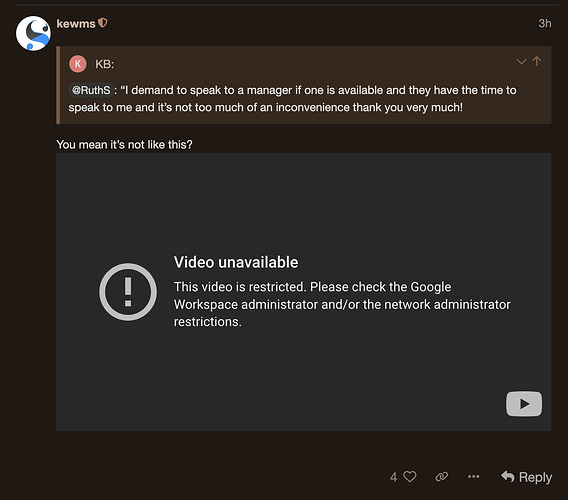Warning: this post may (will) contain whinging.
I am genuinely seething right now over the way Apple treats developers who spend hours and hours of their time conscientiously reporting bugs.
Whenever I encounter a bug in macOS or iOS while coding, or whenever a bug reported by a user turns out to be down to Apple code, I file a bug report with Apple via their Feedback Assistant app/online bug reporting service. It’s not enough just to file a report telling Apple the issue, even if it is easily reproducible. Apple will always ask for a sample project (code) if you don’t provide one. So, I always put together a sample project in Xcode (Apple’s app for developing apps). This can take time - ten minutes in the simplest of cases, an hour or two for more complicated bugs.
Along with the sample project, you have to describe the bug and list all the steps Apple’s engineers need to take to see the bug in the project - more time. All of which is worth it if you’re helping to make the OS more stable and helping Apple fix the bugs affecting your apps. If.
Bug reporting has always been a bit of an issue with Apple. For a large number of bugs you’ll never hear back. They might be fixed without you being notified, or they might just never get fixed. (I have bug reports submitted back as far as 2005 that are still open with no reply.) Others will be closed as duplicates because someone else has reported them, after which you have no way of tracking them.
I can live with all of that - after all, Apple must receive thousands of bug reports every single day. What I can’t live with is Apple’s latest wheeze for dealing with so many reports.
macOS and iOS 26 - being such major changes - are the buggiest releases I’ve seen for years. I have reported more than sixty macOS/iOS 26 bugs to Apple since the first betas in June. Add up the amount of time those reports took me and it must be in the region of days. I don’t expect fast replies or resolutions to these problems - but I do expect Apple to at least leave the bugs open until a human can look at them and test them. For the time I put in, all I expect is the courtesy that an Apple engineer will one day look at what I’ve submitted.
These days, however, a few weeks after filing a bug report, after a couple of minor macOS or iOS updates, I frequently receive a reply that goes something like this: “Is this still an issue for you in a recent build? If so, please attach fresh sysdiagnose logs and any other relevant information, or documents that might prove useful in reproducing this issue. If not, please close this feedback report.” (That vague “a recent build” should be a red flag.)
I’ve fallen for this ruse a few times now, booting into my beta-testing partition and running through all of the steps in the sample project I provided them to test what’s changed - only to find that the bug hasn’t been fixed or even touched at all. What’s happening, it seems, is that Apple is now sending out automated responses to developers, even when no Apple engineer has looked at the report, putting the onus on developers to keep checking their sample code to see if a bug happens to have been fixed by something else that has been changed in the OS (presumably).
Oh, and if you don’t reply, a few days later you get another automated response telling you that the bug report will be closed within two weeks if you don’t respond. (Even though it might have taken Apple many months to have sent you their - automated - reply.) And of course their system allows for no way of reopening a bug report - if your report is closed, you have to submit a new one.
All in all it gives the impression that Apple is more concerned about closing bug reports than actually fixing bugs. And I find it hugely insulting that Apple seems to have absolutely no respect for the time developers put into reporting issues to them - time that we’re not paid for.
For now, my new tactic is to reply asking if a human engineer has checked the project and steps I provided before I do any further testing myself, but the system is so frustrating that it makes me question whether it’s a good use of my time reporting bugs to Apple at all. Sigh.
Okay, that’s my developer whinge over - I’ll get back to coding (and working around bugs) now. ![]()
